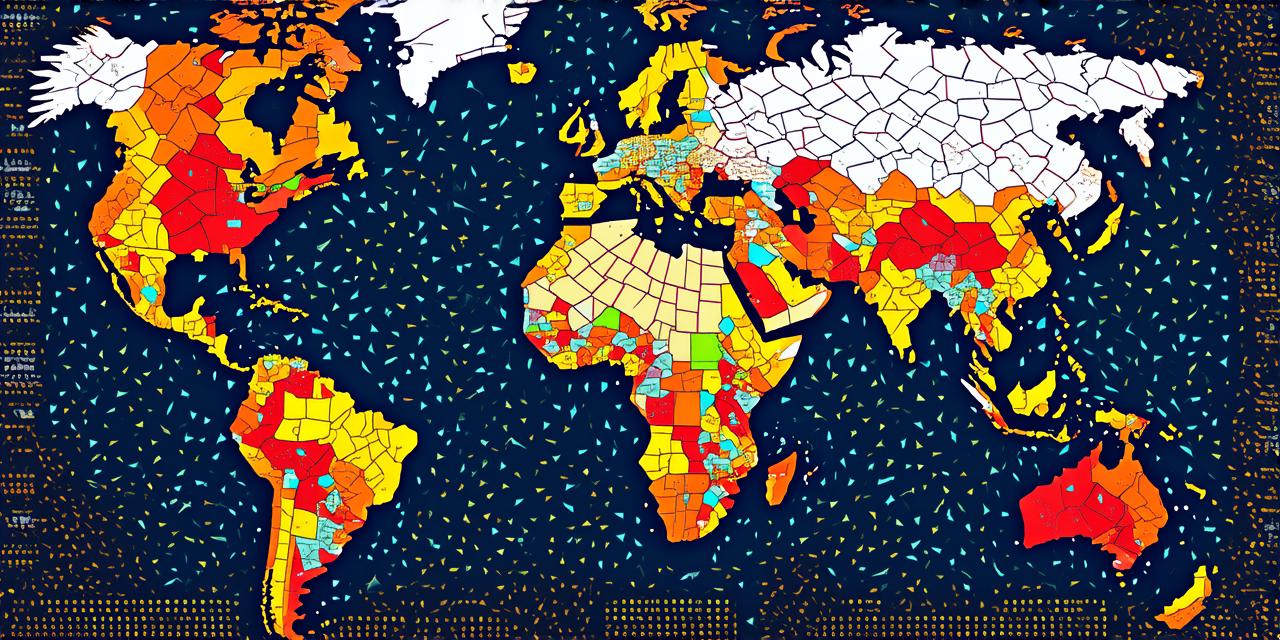The 2023 Globalization Index: Key Findings
According to the 2023 Globalization Index, Iceland remains the most globalized country in the world. This is due to its high levels of economic freedom, strong institutions, and openness to trade and foreign investment. Other highly globalized countries include Switzerland, Singapore, and Hong Kong SAR, China.
At the other end of the spectrum, countries such as North Korea and Cuba remain some of the least globalized countries in the world. These countries have restrictive economic policies, weak institutions, and limited trade with other countries.
The report also highlights the importance of political stability and effective governance in promoting globalization. Countries with strong political institutions and a stable government tend to be more attractive to foreign investment and are better able to attract talent and innovation.
Outsourcing: Shaping the Future of Business
Outsourcing is the practice of hiring third-party service providers to perform tasks that would typically be done in-house by a company. It has become increasingly popular in recent years, with many businesses looking to reduce costs and improve efficiency by outsourcing non-core functions such as IT support, customer service, and accounting.

One of the key benefits of outsourcing is access to talent. Outsourcing providers often have large pools of skilled workers who can provide specialized expertise that may not be available in-house. This can help businesses stay ahead of the competition by gaining access to cutting-edge technology and knowledge.
Outsourcing also allows businesses to focus on their core competencies. By outsourcing non-core functions, businesses can free up time and resources to focus on what they do best. This can lead to increased productivity and profitability.
Case Studies: Real-Life Examples of Outsourcing Success
There are many real-life examples of companies that have successfully outsourced non-core functions to improve their business operations. Here are a few:
1. Coca-Cola: Coca-Cola has outsourced its IT support and customer service functions to third-party providers in India and the Philippines. This has allowed the company to focus on its core competencies of producing and marketing its products, while also gaining access to skilled workers who can provide specialized expertise.
2. IBM: IBM has outsourced many of its research and development functions to third-party providers in India and China. This has allowed the company to stay ahead of the competition by gaining access to cutting-edge technology and knowledge, while also reducing costs.
3. Walmart: Walmart has outsourced its accounting and payroll functions to third-party providers in India and the Philippines. This has allowed the company to focus on its core competencies of retailing and logistics, while also gaining access to skilled workers who can provide specialized expertise at a lower cost.
The Future of Outsourcing: Trends and Predictions
The outsourcing industry is constantly evolving, with new trends and predictions emerging every year. Here are some of the key trends that are likely to impact the outsourcing industry in the future:
1. Cloud Services: The increasing popularity of cloud services is one trend that is likely to impact the outsourcing industry. As more companies move their data and applications to the cloud, they may look for providers who specialize in cloud-based services to help them manage their infrastructure and security.
2. Artificial Intelligence (AI) and Machine Learning: The rise of AI and machine learning technologies is another trend that is likely to impact the outsourcing industry. Companies may look for providers who have expertise in these areas to help them develop and implement AI-powered solutions for their business processes.
3. Cybersecurity: With the increasing risk of cyber attacks and data breaches, companies are becoming more focused on cybersecurity. Providers who specialize in cybersecurity services may become more in demand as companies look to protect their sensitive data and systems.
4. Remote Work: The COVID-19 pandemic has accelerated the trend towards remote work, and this is likely to continue in the future. Outsourcing providers who can offer remote work options may become more attractive to companies looking to reduce overhead costs and improve employee flexibility.
5. Sustainability: As concerns about climate change and environmental sustainability continue to grow, companies are becoming more focused on sustainability. Providers who can help companies reduce their carbon footprint and improve their sustainability practices may become more in demand.
Summary
The 2023 Globalization Index highlights the importance of political stability, effective governance, and openness to trade in promoting globalization. Meanwhile, outsourcing continues to be a popular practice among businesses looking to reduce costs and improve efficiency. By staying ahead of the curve and adopting new trends and technologies, businesses can stay competitive and achieve long-term success.
